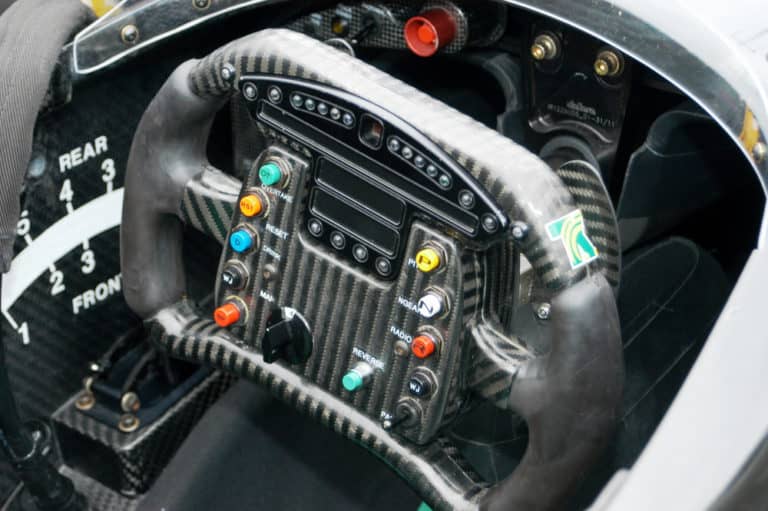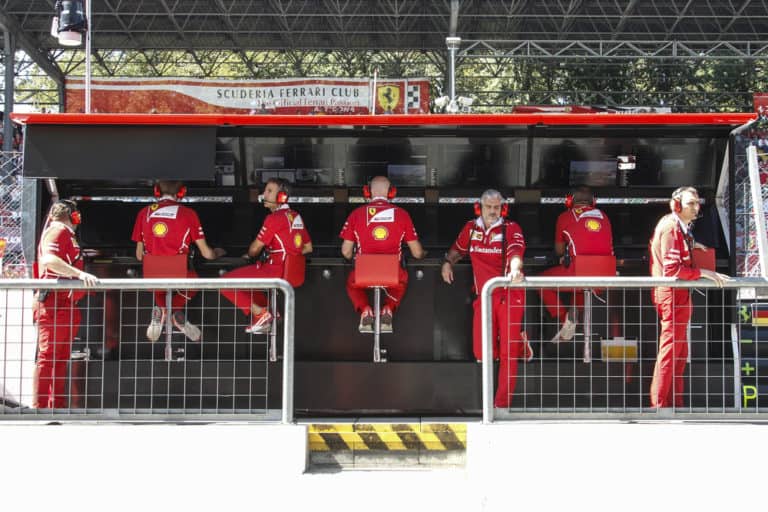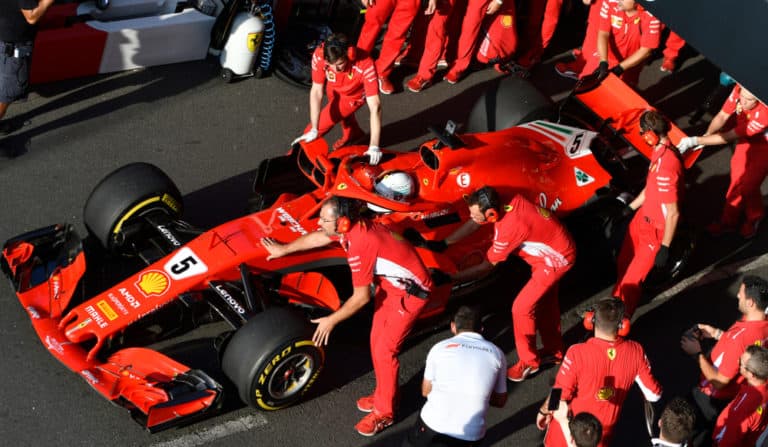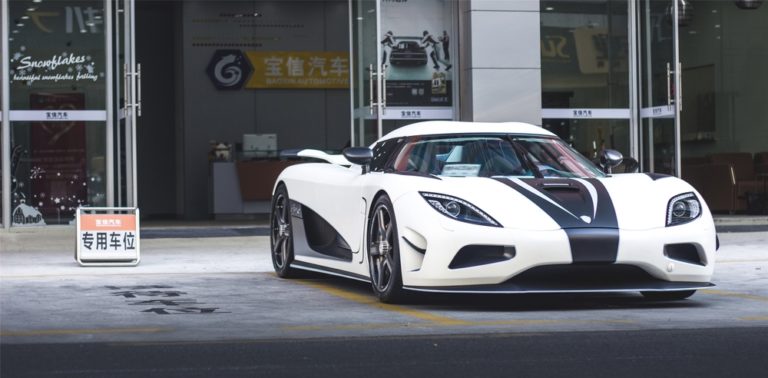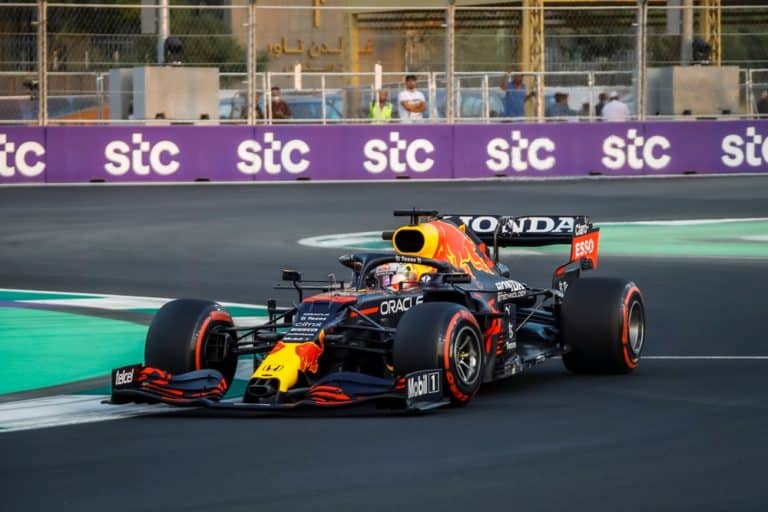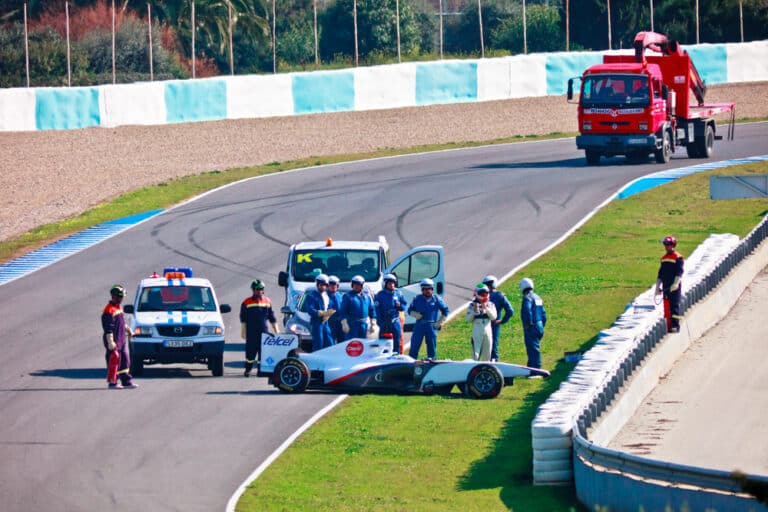Renault has found immense global success with commercial cars and in various motorsports, but is Renault in Formula One?
Although Renault may not officially be represented in Formula One explicitly, they are operating as a constructor under the name Alpine, wherein they also continue to manufacture power units for the team. Prior to 2021, Renault competed in Formula One throughout the years under various team names.
To understand Renault’s presence in Formula One throughout the years, it is worth looking at the history of Renault in Formula One, including critical moments throughout each season.
If you’re looking for some F1 merchandise, check out the awesome stuff at the official F1 store here.
What Is The History Of Renault In Formula One?
Renault’s involvement in Formula One has shifted over its 45-year history in the sport between 1977 and 2022. For our considerations, the following years are important to analyze in greater detail:
- Équipe Renault Elf (1977–1985),
- Renault F1 Team (2002–2010),
- Lotus Renault GP (2011),
- Renault Sport Formula One Team (2016–2020).
1. Équipe Renault Elf (1977–1985),
Renault’s entry into Formula One via the Renault Sport subsidiary, and under the constructor name Équipe Renault Elf, was a tumultuous period for Renault peppered with varying results throughout the team’s eight-year history:
- 1977:
- Dubbed the “yellow teapot,” Renault’s RS01 was unable to score any points in any of the last five Grand Prix of the 1977 season that Renault competed in. Whereby reliability issues with the car were so problematic that the team opted not to travel to the season finale at the 1977 Japanese Grand Prix.
- 1978:
- The 1978 season was marginally better, with Renault missing the first two races of the season, finishing only three of the four races they competed in, and coming in 12th place on the constructor’s standings with a total of 3 championship points.
- 1979:
- The introduction of the RS10 saw some marked improvement, although inconsistencies led to Renault finishing 6th on the constructor’s standings.
- A highlight of the season was 1st, and 3rd place finishes for Jabouille and Arnoux respectfully at the 1979 French Grand Prix.
- 1980 – 1983:
- The early 1980s would prove to be excellent years for Renault, despite Jabouille’s crash at the 1980 Canadian Grand Prix, which saw the French drier having to face an early retirement.
- Between 1980 and 1983, Renault would see their team finish 4th, 3rd, 3rd, and 2nd on the constructors’ standings, with 1983 being a particularly good year for Alain Prost, who would finish the season 2nd on the drivers’ standings.
- 1984 – 1985:
- Despite coming off the back of four strong seasons between 1980 and 1983, the 1984 season would see Renault parting ways with both Alain Prost and Eddie Cheever.
- The loss of their established drivers coupled with Renault’s inability to capitalize on the power of turbo engines in the same manner as their competitors saw Renault ending the 1984 and 1985 seasons at 5th and 7th on the constructor’s standings.
- The combination of mediocre results and greater financial issues at Renault led to their subsequent withdrawal from Formula One at the end of the 1985 season.
2. Renault F1 Team (2002–2010),
After the purchase of Benneton in 2000, Renault agreed to continue under the Benneton brand until they considered themselves to have a car competitive enough to rebrand the team to Renault F1. The rebranding and subsequent era of Renault F1 ran from 2002 to 2010:
- 2002:
- The 2002 season saw Renault finishing 4th on the constructors’ standings with a total of 23 points (well behind 3rd place McLaren – Mercedes at 65 points.)
- 2003:
- Renault opted to replace Jenson Button with Spanish test driver Fernando Alonso. The gamble seemed to pay off with Alonso recording three podiums and Renault’s first Formula One victory since their triumph at the 1983 Austrian Grand Prix.
- Once again, Renault finished 4th on the constructors’ standings with a total of 88 points.
- 2004:
- Despite being strong contenders for 2nd place on the constructors’ standings, Renault ended the season in 3rd place.
- However, 2004 was mired with the controversial breakdown between Renault’s team principal Flavio Briatore and driver Jarno Trulli, leading to Trulli’s exit from Renault before the end of the 2004 season.
- 2005 – 2008:
- With the recent signing of Fernando Alonso, 2005 to 2008 would prove to be extremely successful seasons for Renault.
- Renault would place 1st, 1st, 3rd, and 4th in the constructors’ standings.
- Meanwhile, Alonso would place 1st, 1st, 3rd, and the driver’s standings.
- 2009 – 2010:
- Despite four consecutive strong seasons, Renault would face on-track and off-track difficulties, resulting in accusations of race rigging and an 8th and 5th place finish on the constructors’ standings for 2009 and 2010.
3. Lotus Renault GP (2011),
The 2011 season saw Renault scaling back its constructor’s involvement and instead focusing on being an engine supplier. Consequently, this led to a short-lived partnership with Lotus, which saw the team finish fifth on the constructors’ standings.
4. Renault Sport Formula One Team (2016–2020)
The 2016 season saw a change in guard, with Renault purchasing the Louts F1 Team and rebranding to Renault Sport Formula One Team.
2016 – 2019:
- While 2016 – 2017 saw a poor re-introduction to the sport with a 9th and 6th place finish on the constructors’ standings, 2018 – 2019 saw some improvement for Renault, with a 4th and 5th place finish on the constructors’ standings.
2020:
- Renault would continue to capitalize on their 2018 – 2019 success with their highest points tally as a constructor in over a decade at a Grand Prix (23 points for 4th and 5th places finishes at the 2020 Belgian Grand Prix.)
- Renault’s consistency saw them finish 5th on the constructors’ standings, with Esteban Ocon securing three podiums through the season.
- The re-signing of Fernando Alonso and the rebranding of Renault to Alpine for the 2021 season onwards was communicated at the end of the 2020 season, thus marking a commitment by Renault to remain consistent and competitive; in future seasons!
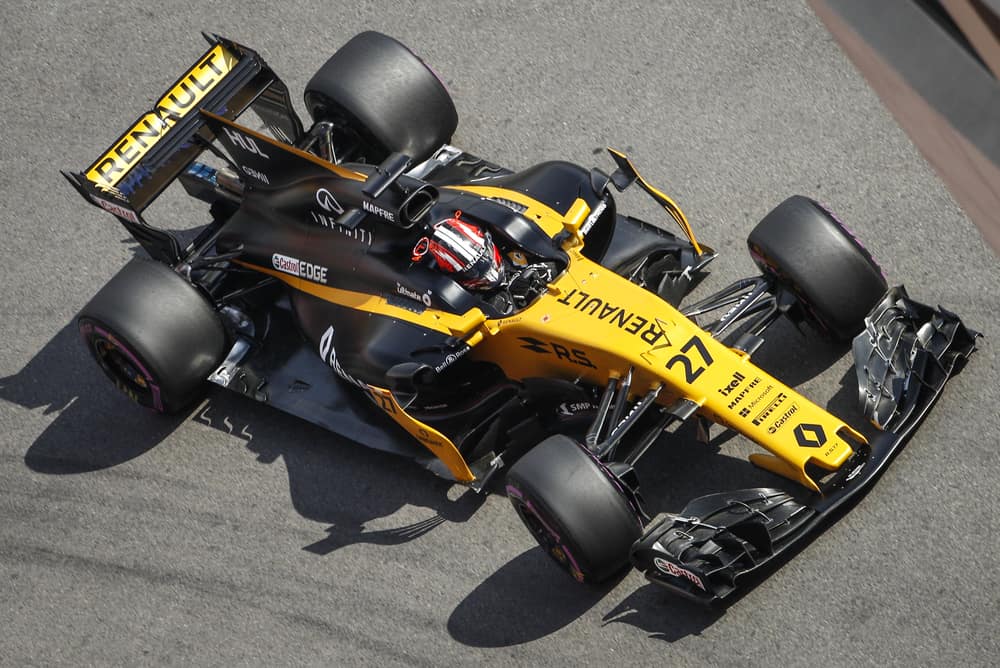
Conclusion
Renault’s involvement in Formula One as engine suppliers and competitors, often under the guise of various corporate names, is a clear indication of how complex corporate strategies can make it difficult for casual viewers to understand exactly which brands are competing in Formula One at any given time!
References
- https://en.wikipedia.org/wiki/Renault_in_Formula_One#%C3%89quipe_Renault_Elf_(1977%E2%80%931985)
- https://en.wikipedia.org/wiki/Alpine_F1_Team
- https://www.formula1.com/en/latest/article.renault-alpine-f1-team-2021.7eY84dCU9MythQjcYG8T45.html#:~:text=Renault%20are%20here%20to%20stay,become%20the%20Alpine%20F1%20Team
- https://www.republicworld.com/sports-news/other-sports/what-happened-to-renault-f1-team-and-what-role-does-renault-currently-play-in-f1.html
- https://www.formula1.com/en/teams/Alpine.html
- https://inews.co.uk/sport/formula-one/renault-f1-new-name-alpine-what-why-livery-colours-633834

